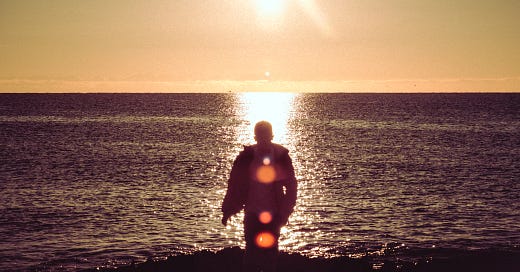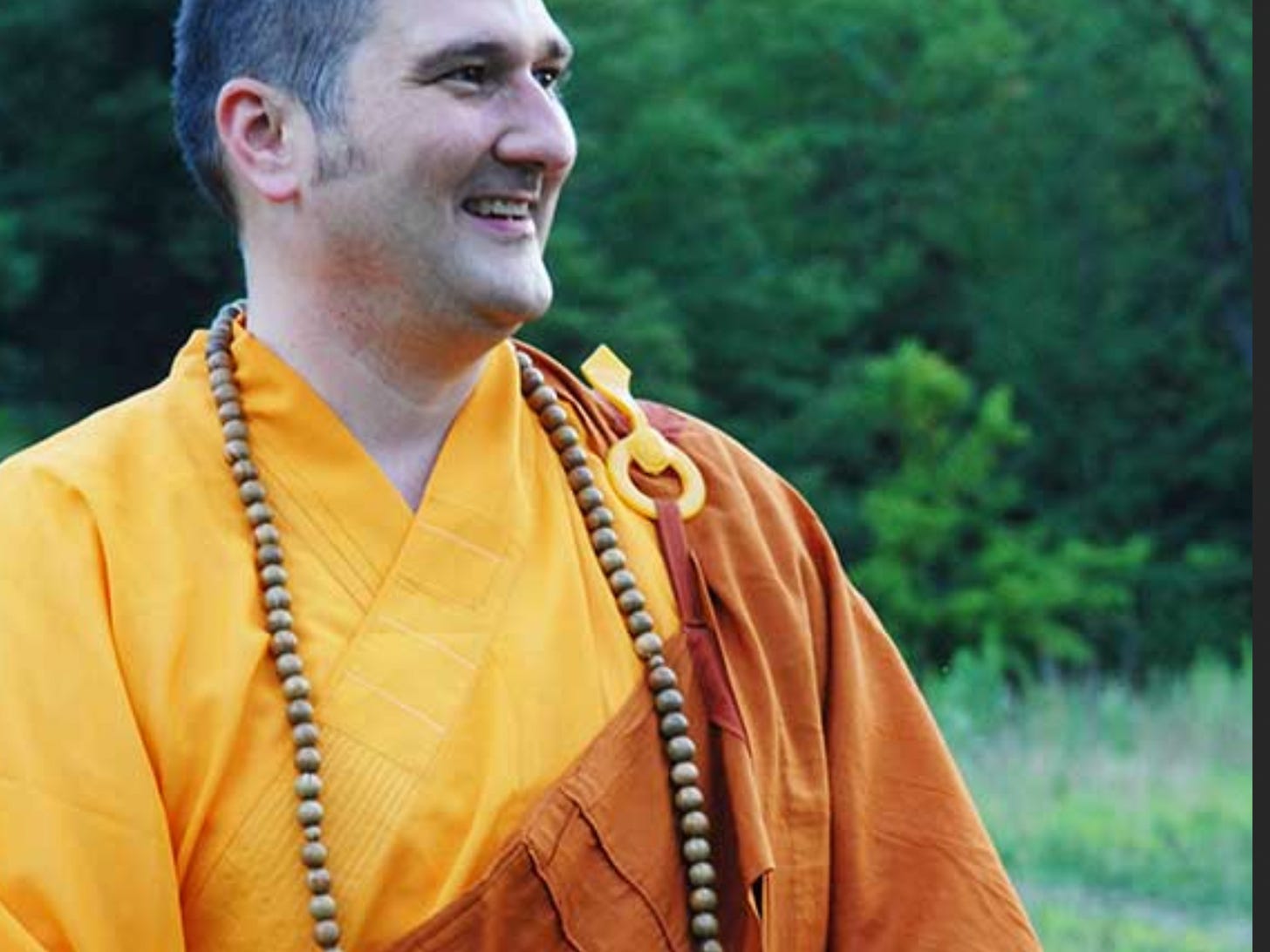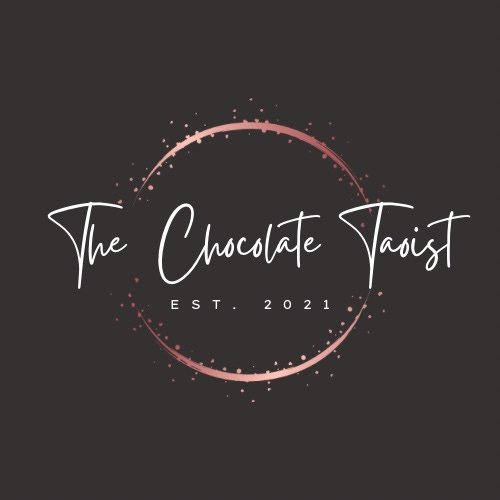This article is a part of a series of pieces that coincide with the book I am writing on “Taoism as the New Currency of Life Inner-Resilience.” So if you are enjoying this digital newsletter, find it valuable, and want to support my book writing journey then please consider becoming a paid member supporter at $6.00/month or $60.00/year. The book “The Way of the Chocolate Taoist” is scheduled for release in June of 2024.
Human energy is a theme I have been drawn to of late. As a longtime Chinese Medicine consumer, I have come to view our bodies essentially as battery packs, akin to our mobile phones that need to remain constantly juiced.
We’ve all had the experience of seeing that red light come on, alerting us that our batteries are less than 10% charged knowing that if we fail to plug in quickly, our phone will go dead. It’s a similar story with our bodies for when we fail to keep the energetic juice flowing, it can result in negative lifestyle implications that can adversely impact our health.
While living in San Diego in 2018, I had a profound experience with energy while taking a class in Qi Gong, a Chinese practice that enhances one's mental and physical health by integrating posture, movement, breathing technique, self-massage, sound, and focused intent. The teacher began by sharing with the class a concept called Dantian, “qi flow centers" in the body that are vital focal points for meditative and exercise practices such as t'ai chi and acupuncture
In short, dantian in Chinese means “field or elixir” or what one would describe as the “fields of life energy force” emanating throughout the body. The concept which has ties to Taoist and Buddhist traditions is believed to be tied to various states of consciousness.
Many energy practitioners believe that, as in the case of a gas heater, our Qi energy pilot lights are always lit — at least while a person is still alive — and can be managed, stoked, and cultivated for a healthy, energy filled life.
It’s here where my curiosities directed me to the book Cultivating Qi: the Root of Energy, Vitality, and Spirit by David Clippinger. Dr. Clippinger is a practitioner, scholar, and Master of T’ai Chi and Chi Kung, who has studied with many renowned Eastern masters over the years.
Chinese practitioners believe that while everything in the universe is composed Qi, the human body is comprised of two main types, prenatal Qi, which we inherit through our parents and is thus in an energetic sense genetic mapping and DNA; and postnatal Qi, which is obtained from external sources such as food and air. An efficient Qi system is predicated on physical groundedness and relaxation while energetic circulation can be facilitated and amplified through body and mind movement.
David’s book “Cultivating Qi” helps to unlock the mysteries behind how Qi can facilitate greater lifestyle health and vitality. He explores what Qi is, where it comes from, and how we can use it to our benefit.
I have found Cultivating Qi to be a useful guide in terms of understanding how to increase ones energy capacity as well as its central importance in ensuring that our energy flow remains fluid and doesn’t become stagnant.
In a chat last year, David was kind enough to walk me through in greater detail his inner journey into the world of human energy systems. Here’s what he had to share:
Let’s begin by having you share a bit about you as well as the deeper purpose and significance of your book.
I have always regarded my writing as part of a continuously unfolding autobiography. The path that culminated in my Cultivating Qi book started in earnest when I was 14 years old reading Henry David Thoreau's Walden. That led me to then try to decipher (unsuccessfully) Lao-Tzu Tao Te Ching. Thoreau and Lao-Tzu were friendly voices who accompanied me through college and then a PhD in Literature, Philosophy, and History. An academic career then followed.
How did all of this inform the message of your book?
Simultaneously as a student and then as a professor, I studied Buddhism and Taoism at monasteries while learning Chinese martial arts and healing practices. These threads which included academic research and writing, becoming a Ch'an Buddhist Priest, joining the Complete Reality School Taoism lineage, dedicating myself to T'ai Chi Chuan and Qigong, and studying under various world-renowned teachers are what came together in the writing of my Cultivating Qi book.
So what ultimately was the catalyst behind your decision to write the book?
The major impetus behind the book was that there seemed to me to be a chasm between the philosophy and practice of T'ai Chi and Qigong and the philosophies that inform those practices. There just wasn't a book I could find that created a necessary bridge between philosophy and practice.
As the American writer Toni Morrison once said, “if you can't find the book you are looking for, then you need to write it.” So I did. It surely wasn't a walk in the park to write, but I have always thought that easy things weren't worth pursuing. I found it to be a very solitary and sometimes lonely project.
Can you describe what your journey into the esoteric realm of Qi has been like?
While having lunch once with my friend, author Deng Ming Dao, he remarked how odd it must have felt to have been so alone in my efforts to build such bridges. He added that many martial artists are not interested in anything beyond the surface philosophy, while the people pursuing the philosophy tend not to be practitioners of the art.
I must admit that I do feel a bit out of place at times while simultaneously recognizing that it’s my path. So a long story short, books have been a natural extension of my journey through life, one that is now a part of other writing projects I’m currently involved in.
For those who may be unfamiliar with the concept of Qi, would you be kind enough to offer a simple explanation of what it is and its importance?
Sure. Quite simply, Qi is energy: the electrical impulses that course through the nervous system, the energy of blood circulation, the kinetic energy of muscular contraction and movement, the energy of the body processing nutrition, the energy of brain waves. But it is also the nutrient values in the foods we eat, the air we breathe, and the environment we live in.
From a physics standpoint, everything is energy which we see reflected through swirling atoms of protons and neutrons. Qi is just another name for all of this. It is the life force for us individually and collectively. And it is the energy of the universe. To become aware of Qi is to become finely tuned to our own bodies, the turning of the seasons, and what is happening all around us. Qi is the secret of health and longevity, and it is the force behind our desires to live with greater purpose and depth in each moment.
What are some of the most common misconceptions you hear about the concept of Qi?
I believe that Qi has been co-opted by the New Age community. And while any attention to the vital aspects of energy is useful, it has also morphed into a number of misconceptions tied to what many believe is a distinction between good Qi (energy) and bad Qi (energy). In my view, energy is simply energy.
Can you elaborate on this point a bit more?
Think of electricity in a building. It is neither good nor bad and has no conscious desire to help or harm. In my view
Qi is the same in that it simply is. But like electricity it can be used as a tool for good or bad living.
You mentioned a second misunderstanding
Yes, another is that Qi can be harnessed for special super powers. For example, there are some people who believe that one use Qi to shoot lightning bolts out of their hands, levitate in the air, bend spoons or even fly. These are things that people have told me that they wanted to learn how to do through the use of Qi. They not only seem disappointed when I tell them that I can't do any of those things, but also that I am not interested in devoting my energy to that since the issue for me is living a deeper, more personally engaged life.
Very Interesting
Isn’t it. Because personally I can't see how any of those superpowers actually help with living other than for what Buddhism refers to as mere "fame and gain." Qi, in my opinion, should not be commodified and regarded as a path to profit. Rather, in acknowledging the flow of the Tao in the universe, our job is to find a way to be in that flow. Because ultimately when we are in harmony with that flow, we are healthy and happy.
You discuss in your book the role that Qi can play in terms of achieving greater levels of wholeness and balance in our lives. Can you elaborate on this?
For me, Qi fits into the bigger picture in my day to day life. It is the fuel for my meditation practice, body practices such as T'ai Chi and Qigong, my teaching, writing, reading, research, as well as all of the everyday things like walking the dog, talking with my wife, cooking a meal. Qi is also the force behind my mental, psychological, emotional, and physical machinations. It also sustains my concentration in terms of engaging in a dynamic relationship with my life. Finally, it provides the means to self-reflect in order to make better decisions. Taoism refers to this as "wu wei," which is where one acts naturally and in accord with a particular situation.
How do you go about sharing your understanding of the relationship of Qi with T'ai Chi, Qigong, and Meditation with your students and others?
I have seen how all of these things have the potential to greatly improve physical and mental health and motivate others on their path of healing and well being. But Qi is simply just one ingredient in the bigger process of self-reflection and actualization. In other words, a person needs "Yi" (proper intention) in order to make this all work. For as we often say, "Yi leads Qi."
Can you elaborate a bit more about the practical importance of Qi in our everyday lives?
Our intention leads our energy. We need energy to sustain our progress on our life path. Yet our intention needs to be clear too in order to prevent it from sapping our Qi. The relationship of Qi to these practices can be best visualized and described as a self-enclosed loop, one where meditation and body practices generate Qi in order to fuel one's intentions. Moreover, the practices become a way of understanding the self more deeply in terms of how Qi works inside and outside of the body. This becomes a self-sustaining system of energy which fuels development and process, which in turn deepens Qi.
So at the end of the day, what is your greatest hope in terms of what readers will walk away from your book with?
I envisioned Cultivating Qi as a prompt for others to enhance their lives through adopting some of what’s described in the "Daily Practice" section of the book. In addition, I wanted readers to be better informed so that they could find an authentic teacher if he or she desired to continue these various practices under expert guidance.
There are too many people teaching who are inadequately trained in these areas. At the same time many people seeking out teachers don't know what to look for in terms of a practice or the qualities of an expert teacher. Because the whole process in a sense is coated in mystery and misinformation, I wanted my book to be a primer for others to use to clear away the smoke of misinformation and make more informed choices.
Any final thoughts you would like to add in closing?
Parallel to the rationale for the book, I also started a not for profit, the One Pine Institute, to host workshops with some of the world's best teachers and practitioners of T'ai Chi, Qigong, Buddhism, and Taoism so that others have access to people I regard as the embodiment of these practices. And since people often contact me asking what to do if there aren't any teachers where they live, I started online classes in Qigong and T'ai Chi as well as a vast recording library of over 200 classes so that people can pursue training wherever they are.
The book fits into my overall goal of providing access for others to engage in these practices and to find the support and motivation, the Qi and Yi as we call it, in pursuit of their own spiritual life paths.







Thank you for this!